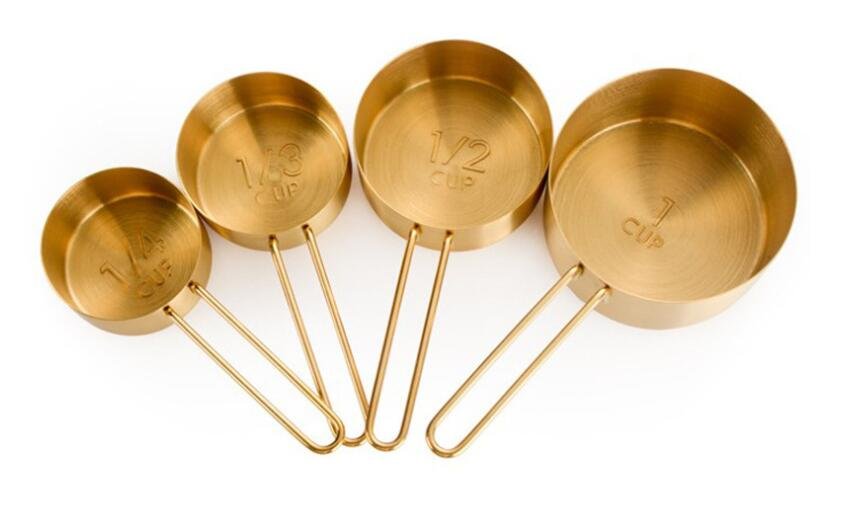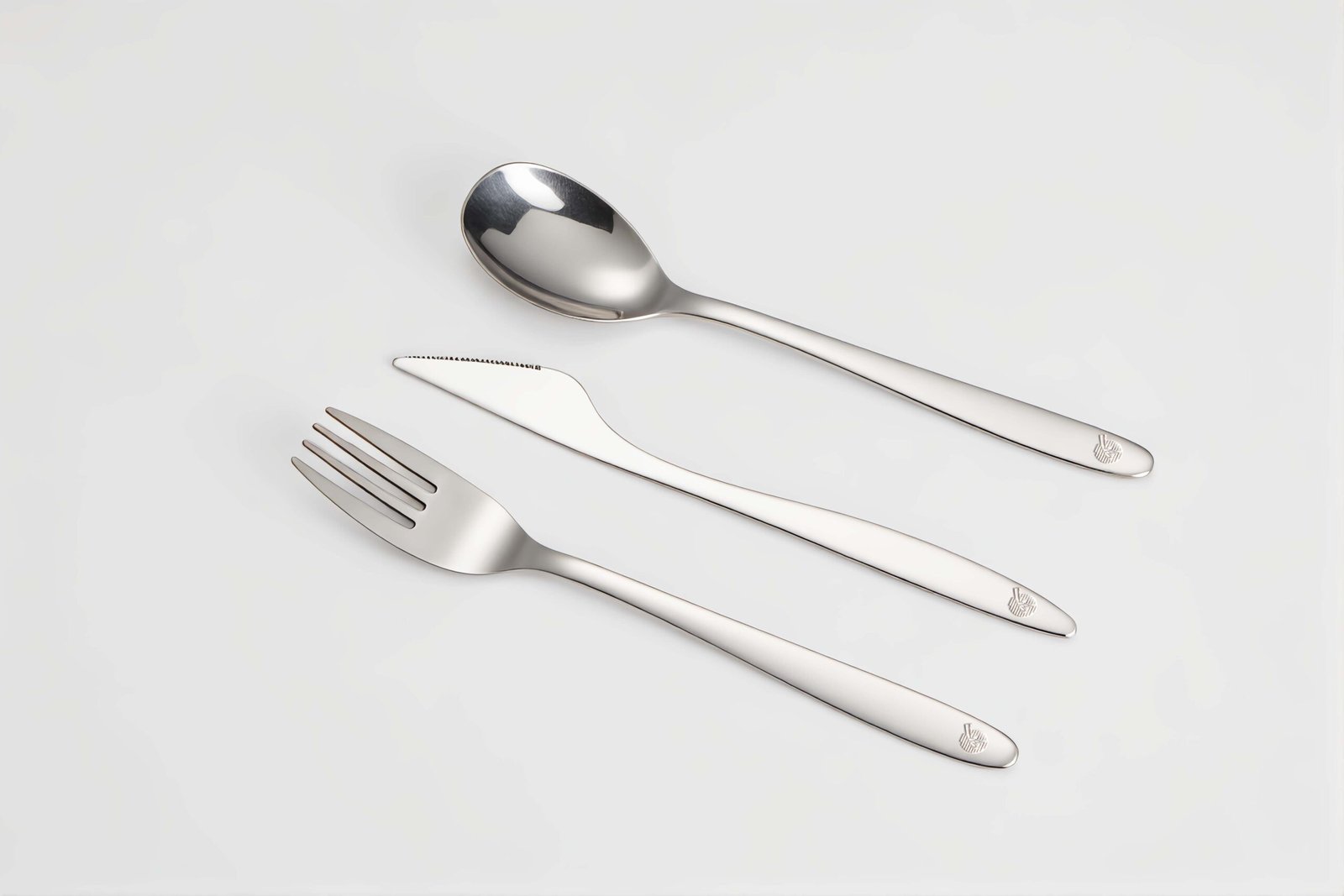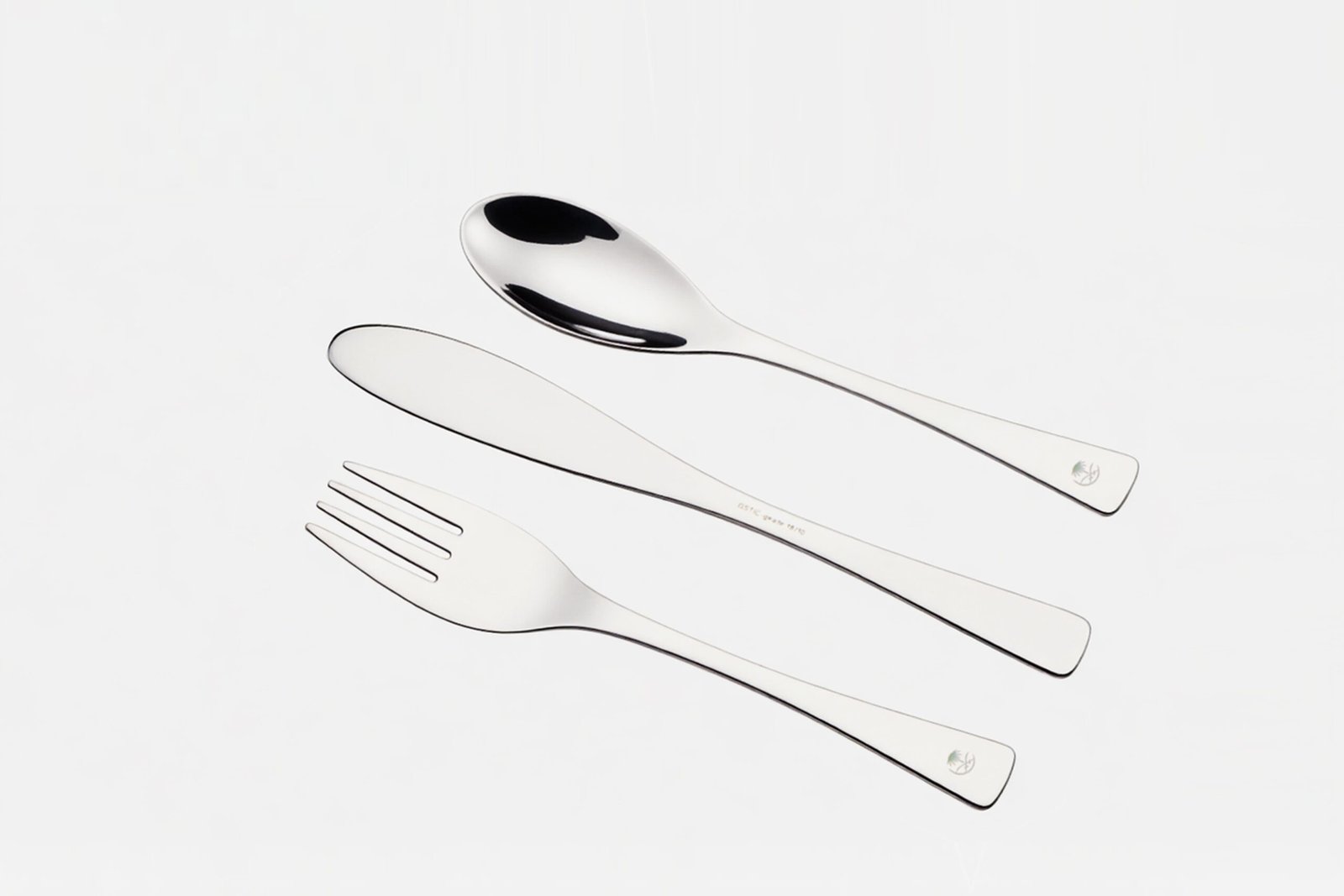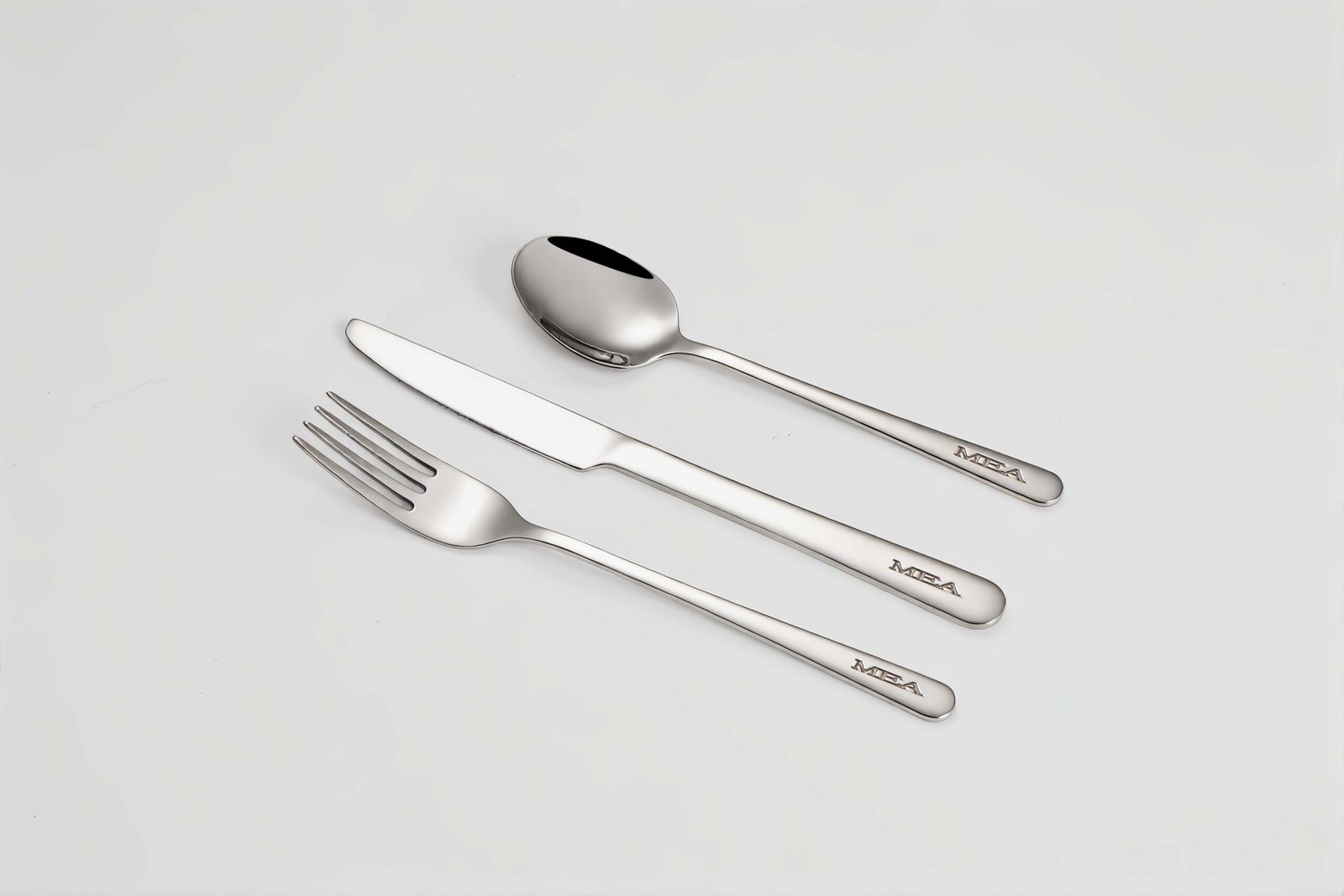In the world of cooking, precision is key, and using the right tools can make all the difference. If you’re someone who values accuracy and durability in the kitchen, a stainless steel measuring spoon set is a must-have. These tools offer a high level of precision and ensure you’re measuring ingredients correctly, without the fear of contamination or wear and tear that comes with other materials.
Stainless steel measuring spoons are durable, easy to clean, and provide accurate measurements. They’re a staple in any kitchen, especially for those who value precision.
Let’s dive into why stainless steel is the material of choice for measuring spoons and how it benefits your cooking experience.
Table of Contents

What Are Stainless Steel Measuring Spoons?
Stainless steel measuring spoons are kitchen tools used to measure ingredients, both liquid and solid, in precise quantities. Typically available in sets, they feature standard measurements such as teaspoon, tablespoon, and sometimes even smaller or larger sizes. The stainless steel construction ensures they are durable, rust-resistant, and highly functional for daily use in the kitchen.
Stainless steel measuring spoons come in a range of sizes to suit any recipe, from teaspoons to tablespoons. They’re essential for accuracy and ease in cooking.
Stainless steel measuring spoons are designed to meet the needs of home cooks and professionals alike. The material’s durability makes them perfect for frequent use, as they resist bending or breaking under pressure. Compared to plastic spoons, stainless steel can handle hot temperatures, so they’re perfect for both wet and dry ingredients, especially when dealing with heat-sensitive recipes. They’re also less likely to retain odors or colors, unlike plastic spoons.
Why Choose Stainless Steel for Measuring Spoons?
Stainless steel measuring spoons stand out due to their resilience and longevity. Unlike plastic, stainless steel is resistant to wear and tear, corrosion, and staining. This makes them ideal for use in both the home and professional kitchens, where durability and cleanliness are key factors.
Stainless steel is a durable, heat-resistant material that won’t warp or stain over time. It’s also non-reactive, meaning it won’t impart unwanted flavors to your ingredients.
The reason stainless steel is a superior choice for measuring spoons comes down to its unique properties. It’s not only more hygienic but also more resilient compared to plastic. Stainless steel doesn’t degrade over time, ensuring your measuring spoons remain in top condition. In contrast, plastic spoons can warp under heat, absorb food odors, and degrade with extended use. Additionally, stainless steel measuring spoons are generally easier to clean, as they don’t absorb food particles or harbor bacteria in the same way plastic can. This makes them a safer and more sustainable choice for long-term use.
Are Plastic or Stainless Steel Measuring Spoons Better?
When choosing between plastic and stainless steel measuring spoons, there are clear advantages to opting for stainless steel. While plastic spoons are lightweight and inexpensive, they often don’t hold up as well over time. Plastic can stain, warp, and even crack under extreme temperatures, making stainless steel the better choice for those who want durability and reliability.
Stainless steel measuring spoons are more durable, hygienic, and heat-resistant compared to their plastic counterparts. They last longer and provide more accurate measurements.
While plastic measuring spoons may initially seem more affordable, their performance declines over time. Heat can cause plastic to warp, making it less reliable for precise measurements. In contrast, stainless steel maintains its shape and functionality under high temperatures, providing consistent accuracy for every recipe. Moreover, stainless steel spoons are often better for health, as plastic may contain harmful chemicals that leach into food, particularly when exposed to heat. Stainless steel, on the other hand, is non-toxic and doesn’t interact with food.
What Are the 4 Types of Measuring Spoons?
Measuring spoons come in various styles to meet different cooking needs. The four most common types include traditional measuring spoons, ringed sets, collapsible spoons, and spoon sets with additional markings for specialty measurements like 1/8 teaspoon or 3/4 tablespoon.
Different types of measuring spoons cater to various needs from traditional designs to more specialized sets with extra measurements.
Traditional measuring spoons are the most common and typically include teaspoons, tablespoons, and sometimes half or quarter measurements. Ringed measuring spoons are handy for keeping all spoons together on a keychain-like ring, ensuring they don’t get lost in the kitchen drawer. Collapsible spoons are space-saving options ideal for travelers or small kitchens. Spoon sets with extra measurements such as 1/8 or 3/4 teaspoon are great for recipes that require more precise amounts of ingredients. Understanding the different types can help you select the set that best fits your cooking style and needs.
Are Stainless Steel Measuring Spoons Dishwasher Safe?
Many stainless steel measuring spoons are dishwasher safe but it’s always a good idea to check the manufacturer’s instructions. The high durability of stainless steel makes it resistant to the heat and detergents commonly used in dishwashers; meaning your spoons will remain rust-free and looking new even after multiple washes.
Stainless steel measuring spoons are typically dishwasher safe but always verify the manufacturer’s guidelines for care and maintenance.
While most stainless steel measuring spoons are dishwasher safe there are exceptions especially for sets with wooden or plastic parts. It’s important to check for any special coatings or features that may require handwashing to preserve their quality. Dishwashing machines use high heat and detergent which can cause wear on other materials but stainless steel withstands this environment well. Regular cleaning in the dishwasher saves time and ensures your measuring spoons stay free from oil food residues and odors.
Do Chefs Use Measuring Spoons?
While professional chefs may often rely on their intuition and experience to measure ingredients, measuring spoons are still an essential tool in many kitchens. In particular, chefs use measuring spoons for precise ingredients such as spices where a small variation can significantly affect the final dish.
Chefs use measuring spoons for precision especially in recipes requiring accurate amounts of spices or leavening agents like baking powder.
In high-end kitchens chefs often use measuring spoons for ingredients that require exact measurements. For instance when baking a slight variation in the amount of baking soda or spices can alter the outcome of the dish. Even though chefs may work without precise measurements in some cases tools like measuring spoons are crucial in the context of specialized recipes where accuracy is key to achieving desired results. These spoons also ensure consistency across different batches of the same dish.
What Is the Healthiest Material for Spoons?
When choosing spoons the material matters greatly. Stainless steel is widely regarded as one of the healthiest materials for kitchen tools as it does not leach chemicals into food unlike some plastics.
Stainless steel spoons are non-reactive meaning they won’t interact with your food making them a healthier choice compared to other materials like plastic.
Materials like plastic or aluminum can contain harmful chemicals such as BPA or lead that may leach into food over time. Stainless steel however is inert and won’t react with food preserving the flavor and integrity of your ingredients. Additionally stainless steel doesn’t retain bacteria or odors making it one of the cleanest most hygienic options for utensils. This makes it particularly well-suited for those concerned about food safety and health.
Is Stainless Steel More Hygienic Than Plastic?
Yes stainless steel is often considered more hygienic than plastic. Unlike plastic which can harbor bacteria in its porous surface stainless steel is non-porous making it easier to clean and less likely to hold onto contaminants.
Stainless steel’s non-porous nature makes it more hygienic than plastic which can trap bacteria and food particles.
The smooth non-porous surface of stainless steel ensures that no food particles or bacteria are trapped making it much easier to sanitize. Plastic on the other hand can develop cracks and scratches over time providing places for bacteria to hide. In a high-demand kitchen hygiene is a top priority and stainless steel tools help maintain cleanliness and prevent cross-contamination.
How to Tell if Measuring Spoons Are Accurate?
Accurate measuring spoons are essential for consistent results in cooking and baking. To ensure your measuring spoons are accurate compare them to a standard measurement such as a known quantity of water or use a kitchen scale for precision.
Check the accuracy of your measuring spoons by comparing them to a standard measurement or using a kitchen scale to verify.
To test the accuracy of measuring spoons fill them with a known volume of liquid or solid such as water then measure it using a graduated cylinder or another precise tool. If there’s a discrepancy your spoons may need recalibration or replacement. Ensuring your measuring spoons are accurate is crucial especially in recipes requiring precise proportions such as baking.
How Many Sets of Measuring Spoons Do I Need?
Most home cooks find that a single set of measuring spoons typically containing teaspoons and tablespoons should be enough for most home cooks.
A basic set of measuring spoons is enough for most home kitchens though extra sets can be helpful for frequent cooks.
If you often cook in large quantities or follow complex recipes you may find it helpful to have more than one set of measuring spoons. This prevents constant washing and allows for multiple measurements without interruption. Additionally some sets come with additional measurements such as 1/8 teaspoon which can be helpful for more specialized recipes.
Which Spoon Is Used for Eating?
When it comes to eating there are various types of spoons but dining spoons—such as soup spoons teaspoons and dessert spoons—are the most common. Each type serves a different purpose depending on the type of food being eaten.
Dining spoons are used for eating with different spoons suited for soup dessert or regular meals.
The choice of spoon for eating depends on the food being consumed. Soup spoons with their deeper bowls are perfect for liquid foods while teaspoons are typically used for smaller portions such as stirring coffee or eating dessert. Tablespoons are used for regular meals and larger portions.






